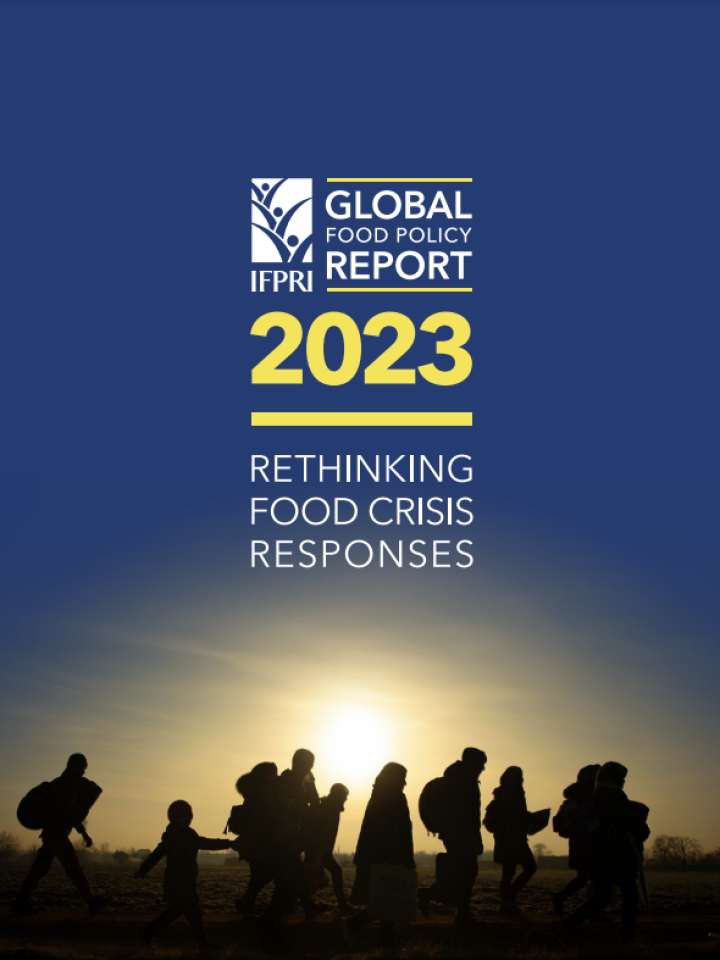Global food policy report 2023
The report explores a growing body of evidence on how diverse policy responses can reduce both the immediate and longer-term impacts of food crises, and improve livelihoods, incomes, and food security and nutrition for the future. Drawing on research from IFPRI and other CGIAR centers, it provides evidence-based policy recommendations for governments, donors, and nongovernmental organizations. Increasingly frequent and complex food crises are driving up the numbers of hungry and displaced people, compounding the urgent need to rethink crisis responses now. Drawing on recent experiences and research, the 2023 Global Food Policy Report highlights opportunities for building a more effective and sustainable set of policy responses.
The key messages of Chapter 2 "Food crisis risk monitoring: Early warning for early action" assess that early-warning, early-action systems provide alerts of potential food crises — identified as sudden and substantial increases in acute food insecurity — as well as guidance to policymakers and international development agencies about needs for humanitarian action. Use of different methodologies and varying coverage of vulnerable populations mean different early warning systems for acute food insecurity can yield dissimilar estimates of the severity of food crises. In Chapter 3 "Crisis resilience: Humaniatrian response and anticipatory action" the key messages include the following: The vast majority of humanitarian response is activated after a crisis occurs, delivering lifesaving aid, but at relatively high costs and in a framework that prioritizes short-term solutions over long-term resilience. Better evidence can help align humanitarian aid delivery with medium- and long-term development strategies and with resilience building.
Explore further
